So, you're sure that you have a hen by knowing the differences between hens and roosters. You know if chickens lay eggs without a rooster or not and how long chickens live. And now you want to know when do chickens start laying eggs?
While there is no way to predict the exact day you will get your first egg, there are several signs and factors you can use to anticipate a general timeframe that she will start laying eggs.
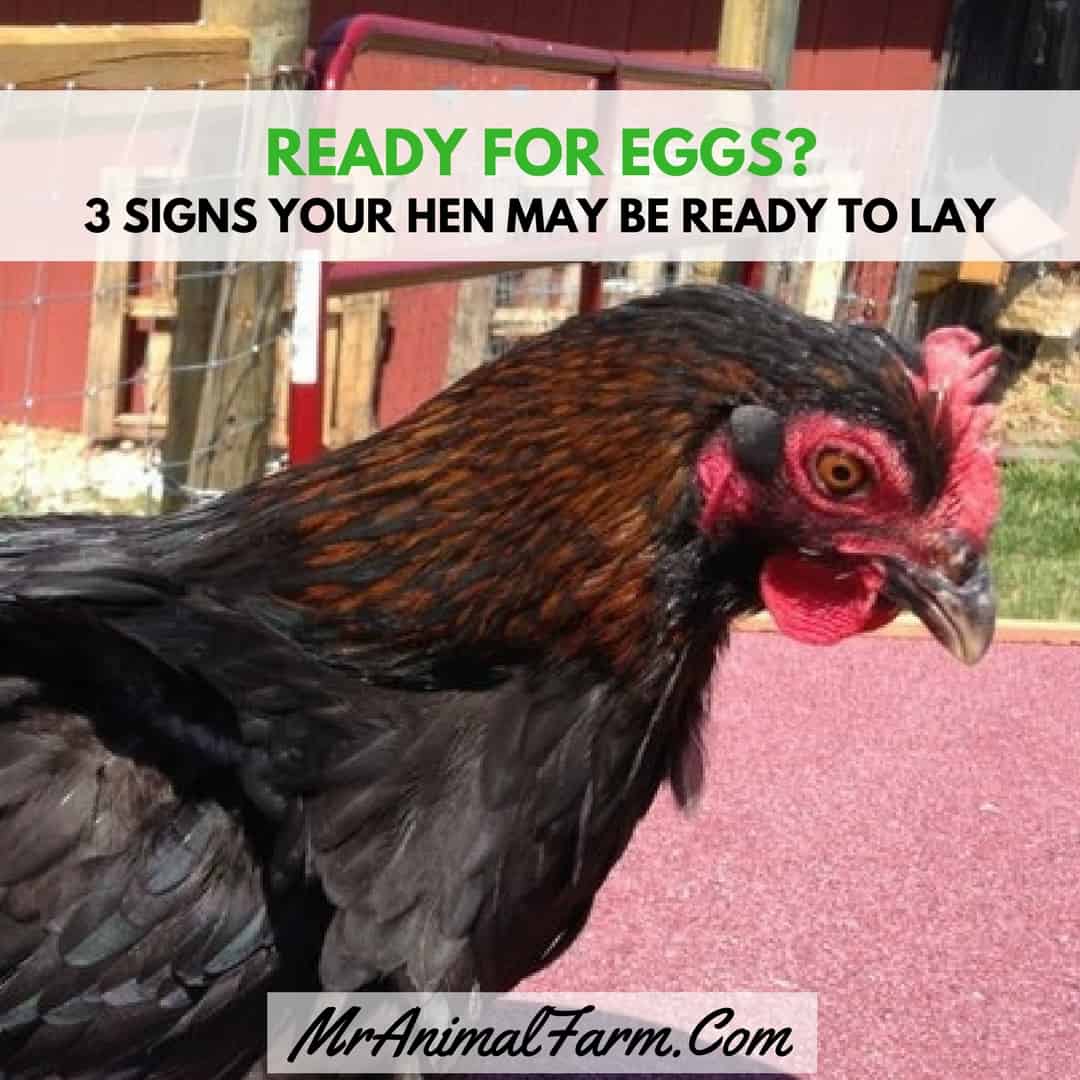
When Do Chickens Start Laying Eggs?
Most chickens start laying eggs around 5 or 6 months old. Though some breeds lay earlier (16 weeks) or much later (8+ months).
Breed type and season can also affect the timing of when they will start to lay eggs. Some smaller, slower producing breeds will sometimes go as long 8 months or so to start laying eggs regularly.
Feather type (standard, frizzle chickens, etc), color, and markings, do not make a difference in the timing.
Here are the top 3 signs your hen is ready to lay eggs:
There are a several signs and factors you can look for to determine when you might get your first eggs. It is important to be prepared for your first eggs so that you can be providing your hens the nutrition and proper chicken care that they need to support egg laying. (More on that below also).
1) Age
How long until your chickens start laying eggs for the first time can be a pretty big range among different chicken breeds. That being said, if you know the specific breed of your chicken, age can be a helpful indicator on when your hen will be ready to lay her first egg.
As we mentioned earlier, Heavy egg productions breeds such as Rhode Island Reds, Sex links, Amberlinks, Australorps may start laying eggs relatively young (around 16 - 18 weeks).
However, other breeds that are bred more for show and pets and mature slowly such as Silkies can take up to a year.
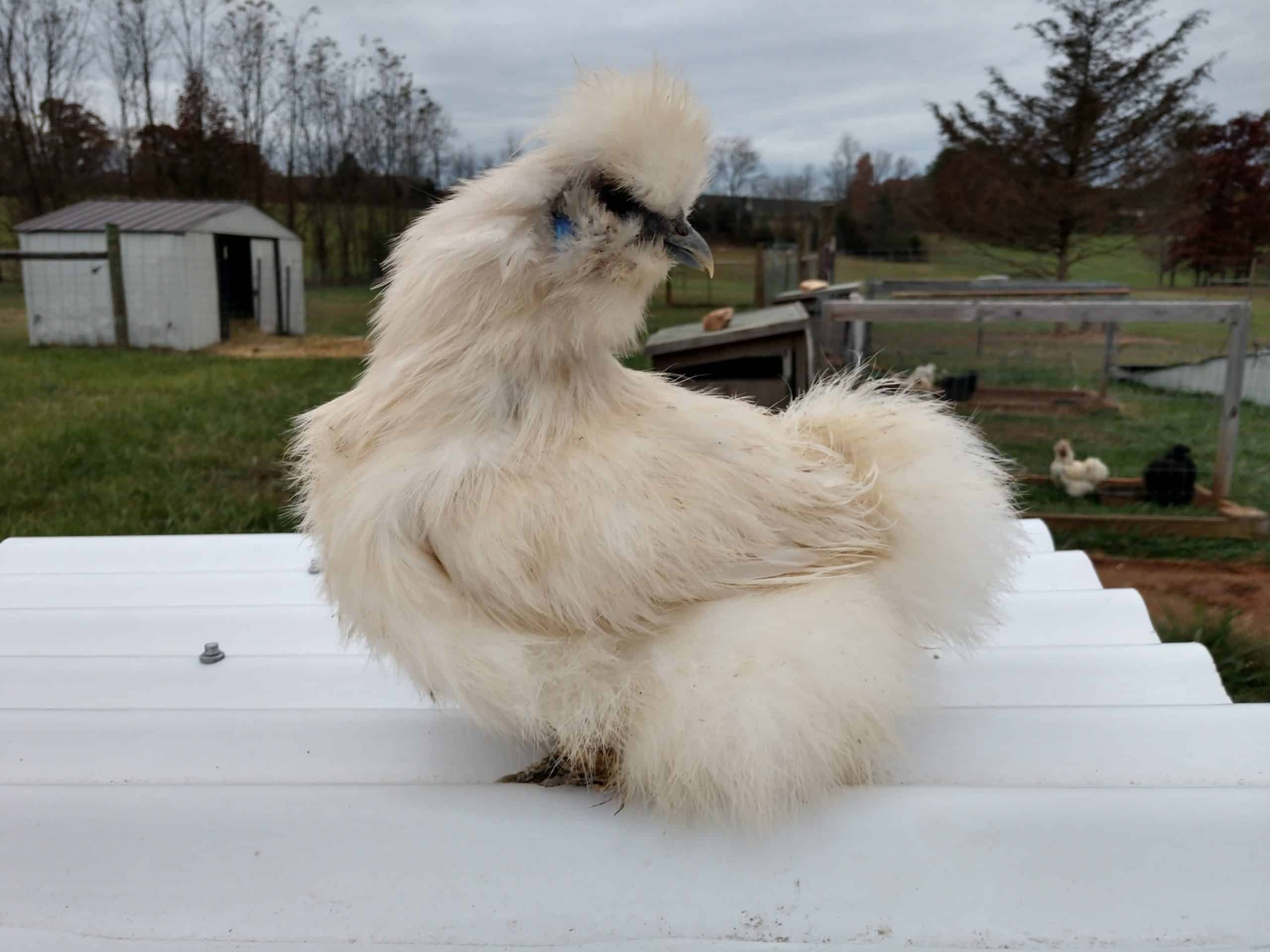
There are also, of course, some breeds who fall into the middle range like Easter Eggers. Easter Eggers chickens start to lay eggs in the 20 - 25 week age range. Which ends up being about 5 - 6 months.
A few other breeds in the 6 month range (but that sometimes can climb into the higher 8 month range like Silkies) are large breeds like Orpingtons, Sussex chickens and Wyandottes. As well as unique breeds like the Welsummer and Salmon Faverolle.

So, while you can't use one single age across the board, if you know the norms for your particular breed it can certainly help you get a good ballpark on what age your chickens will start laying eggs.
When Do Chickens Start Laying Eggs By Breed Chart
| Chicken Breed | Average Egg Laying Age |
|---|---|
| Amberlink | 18-20 Weeks |
| Australorp | 16-18 Weeks |
| Ameraucana | 20-25 Weeks |
| Bantams | dependent on their breed |
| Easter Egger | 20-25 Weeks |
| Marans | 5-8 months |
| Olive Egger | 20-25 Weeks |
| Orpingtons | 20-25 Weeks |
| Rhode Island Red | 16-18 Weeks |
| Silkies | 8-12 months |
| Sussex | 5-8 months |
| Welsummer | 5-8 months |
| Wyandotte | 5-8 months |
Need some help keeping your chickens health and care taken care of? Check out the Organized Chicken Keeper for an easy to follow system.
2) Comb/Wattles
Although a hen will not get a huge comb and wattles like a rooster, she will get bigger, redder ones right before she starts laying eggs.
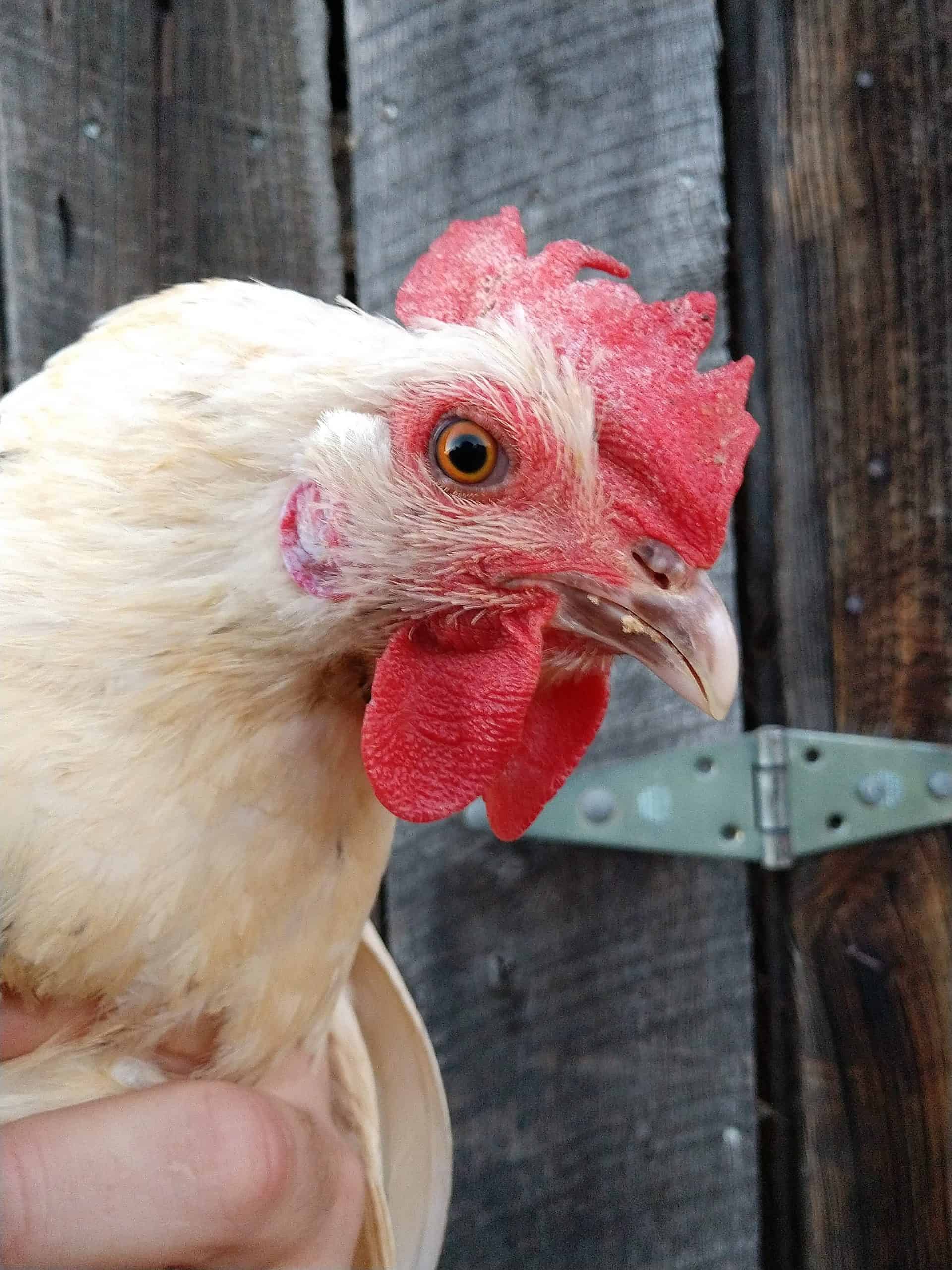
Often times, a hen will not really have much of anything in the way of comb/wattles when she is a young pullet. These will be extremely pale pink.
However, as the time gets closer to when your chickens start laying eggs, your hen's comb and wattles will get significantly larger and turn a deep red. This reddening and increase in size is an indication that she is maturing. Once fully mature, the eggs will start coming.

3) Squatting
A hen who is close to point of lay will start "squatting" behavior. Squatting is pretty much what it sounds like, the hen will hunker down sort of spreading her wings a bit.
Often times you can trigger her to do so by putting your hand out over her. Hens do this to get into a mating position for a rooster. That means they won't start squatting until they are close to maturity (egg laying age). How chickens mate is a pretty simple process that all starts with squatting.
4) Behavior Changes
As your hen matures and gets closer to laying her first egg, you may also notice some behavior changes. She may start getting a little noiser, she may get more interested in your roosters, or more territorial with other hens.
She may even start eating more as her body has higher energy demands ramping up egg production. These are signs you can look for when doing your daily or weekly health checks,
5) Checking Out Nesting Boxes
Hens know instinctively (usually) that nesting boxes are where they should go when it's egg time. This is if you're nesting boxes make them feel safe and secure anyway.
So, as it gets closer to time to lay, your hens might start exploring the nesting boxes, checking them out and spending some time in them.
How to Prepare
Laying eggs is a big task and can take a lot of energy for you chickens. Therefore, you should make sure they have right things to keep them happy and healthy.
Proper Feed

Around 16 - 18 weeks of age, you should switch your chickens from starter and grower feed to layer feed. Once your hen is ready to lay, you will want to make sure that you are feeding a layer feed (which has more calcium in it) rather than a starter or grower feed.
The additional calcium in the layer feed will ensure that your hen is able to properly form solid egg shells.
If you do not provide your hen that is starting to lay eggs with the proper nutrition, you may end up with soft shelled eggs (which can break easily) or even eggs without a shell at all! You can also provide free choice oyster shells that they can eat when they feel they need an additional boost of calcium.
Learn how to much it costs to feed chickens AND decrease chicken feed cost!
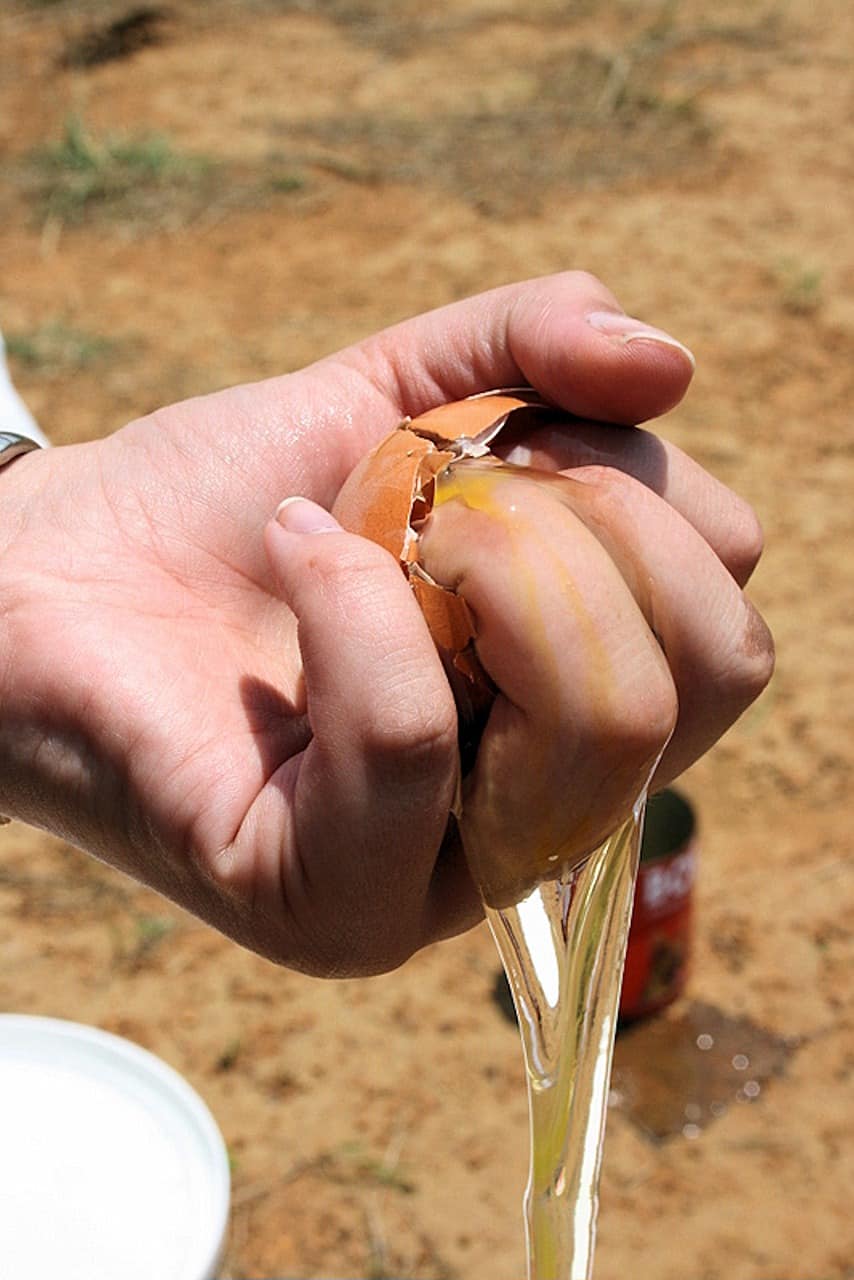
Clean & Safe Nesting Boxes
Another thing you will want to ensure that you provide your hen that is ready to lay eggs is a safe, cozy nesting box area as well as some wooden or fake eggs.

We use these fake eggs. They help your hen to know where to go when she is ready to lay eggs for real 🙂
The fake eggs will encourage them to start laying eggs in their nesting boxes. They have an instinct to lay where they think other eggs are since that is then perceived as a safe spot.
Nesting boxes should be clean, slightly off the floor of the coop and in a dark place. Also, make sure they have straw or shavings in them. This will feel cozy for your chickens and also protect the eggs from breaking once laid.
FAQ
Can I eat the first egg a chicken lays?
Yes, you can eat their first egg. The first egg, also called a pullet egg, is a normal egg but often times is significantly smaller than what their other eggs will be.
How Often will my Chickens Lay Eggs?
The frequency of egg laying depends greatly on the breed. They can average anywhere from 2 - 6 eggs per week.
How Long Do Chickens Lay Eggs?
Chickens' egg production is at peak between 2 - 3 years of age. Heavy layers will tend to stop egg laying much earlier while lower producers can continue to lay eggs sporadically for many years after peak egg production.
How do I get my chickens to start laying eggs?
While you can't force a chicken to start laying eggs, you can ensure it has the proper layer feed, clean and safe nesting boxes and is in top health so that she can be well prepared for egg production.
Why are my 6 month old chickens not laying eggs?
Well, first, they may just not be ready yet. But, if they are an early egg laying breed or if they aren't laying well past 6 months there may be other factors at play.
Some things that can prevent or decrease chickens egg production are:
- Molting
- Decreased light - if you have chickens that hit maturity during winter, for example, they may take significantly longer than the average time.
- Health issues such as lice and mites to name a few
- Stress
- Sometimes chickens start laying eggs other than in their nesting boxes
When Will They Lay The Most Eggs?
Additionally, you should know that when your hen starts to lay their highest volume of eggs will come from laying age to around 2 - 3 years old. During this time, if you have several hens laying eggs you may want to think about how to freeze eggs so that they don't go bad.
When do Australorps start laying?
Australorps typically start laying eggs in the 5 to 8 month range. However, they are good egg layers and some may start as early as 16 - 18 weeks.
When do Olive Eggers start laying?
Olive Eggers typically start laying eggs between 5 and 6 months of age which is about 20 - 25 weeks old.
When do Bantams start laying?
Bantams lay eggs according to when their specific breed usually starts. Bantam chickens are not a breed persay, they are a size of chicken.
When do Silkies start laying?
Silkies usually start laying eggs between 8 and 12 months of age. They tend to start laying much later that some other breeds do.
When do Ameraucanas start laying?
Ameraucanas start laying eggs in the 20-25 usually which is the average laying age for most breeds.
When do Wyandottes start laying?
Wyandottes usually start laying eggs around 5-8 months of age. They are a little of a larger breed and those usually lay a little later than other breeds.
When do Rhode Island Reds Start Laying?
Rhode Island Reds usually begin laying eggs around 16-18 weeks old. They are one of the breeds that typically starts laying earlier than average.
When do Orpingtons Start Laying?
Orpingtons can start laying eggs by 20-25 weeks of age. However, they are a larger breed and sometimes can take up to 8 months to really start laying.
When do Easter Eggers start laying eggs?
Easter Eggers usually start laying somewhere between 20 - 25 weeks of age which is about 4 - 5 months old.
When do Welsummers Start Laying?
Welsummer usually start laying around 5-8 months of age. They are not a larger breed, but their dark eggs usually take a little longer than average to start going.
When do Sussex Start Laying?
Sussex typically begin to lay eggs at 5-8 months old.
If you need more help with taking care of your chickens, check out The Organized Chicken Keeper for a complete system for managing their health through keeping their supplies stocked and coop clean.
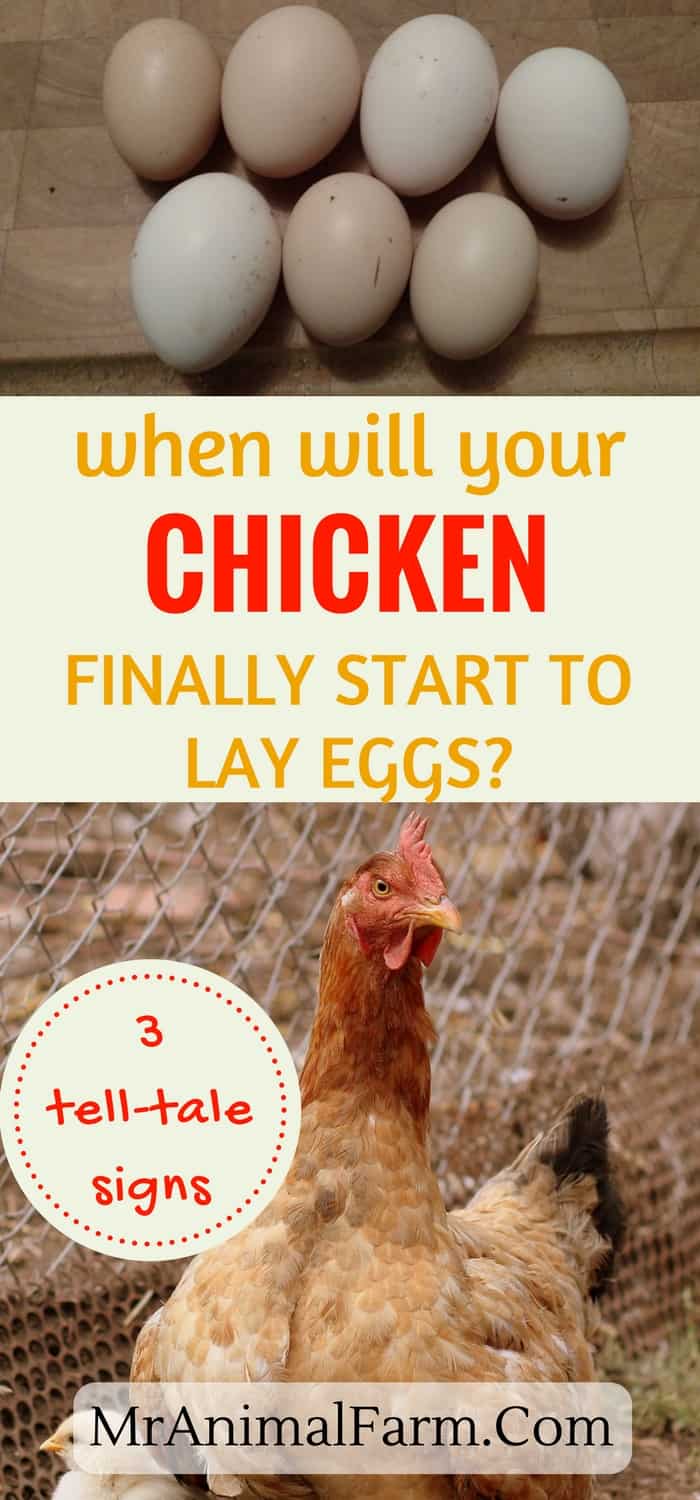

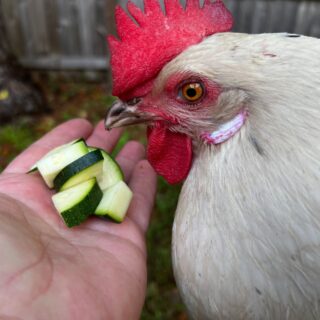

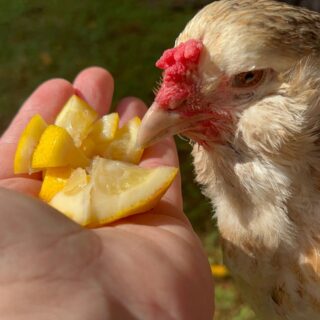
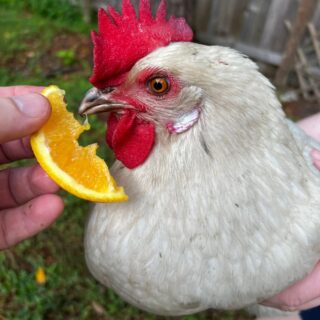
Patti says
I would also like to add if you think they should be laying by all signs mentioned above but you are not seeing eggs; check to make sure raccoons, snakes; etc are not eating them.
Donna says
I got my first egg 3 days ago but haven’t gotten another one .. how long will she go before she lays another one?
Is this normal?
MrAnimal Farm says
Frequency of laying can depend on many factors including breed, age, health and time of year. So, yes, that can be a normal timeframe for some chickens.
Lorri says
Hello. We inherited hens when we bought our home. I know they are at least 3 years old. We have 5 hens and for the last 6 months only get 1-2 eggs per day, used to get 5 every day. We give them good layer feed, veggies and fruit too. Are they just getting too old to lay?
MrAnimal Farm says
At 3 years old, yes you will see a decrease in amount of eggs laid (typically, this can vary dependent on the breed how much of a decrease). Keep in mind during shorter daylight hours they will lay less and also during molting which usually happens in the Fall. And while those two things may be at play now, they certainly haven't been for the last 6 months.
If they are in good health (no lice etc), and you are sure they aren't hiding eggs anywhere, then they probably are just starting to lay less. Unless you saw a sudden decrease - then I would look at one of your hens or some other animal maybe stealing/eating eggs.
Denise Warden says
I am new to having hens (got 2 for last Mother's day, but 1 passed away) & she a 2 and a half month old Black Australorp. I was told she will start laying eggs at 3 months but then someone else says she will at 4 months (she been on layers feed for a few weeks already). Please help straighten the confusion. Thanks
MrAnimal Farm says
Hi Denise,
There is not an exact day answer as all hens can be a little different. That being said, 3 months is a little young for any breed. I would not have her on layer feed yet at 2 1/2 months. It has too much calcium in it for them if they are not laying yet. I would keep her on starter/grower feed until she starts laying. If you follow the signs listed above, you can get a better feel for when your hen will be ready to start laying. I would probably guess more in the 4 - 6 month timeframe.
Best,
Kristin
VIctor says
hi I have pullets that is up to 4months but have not start laying what do I do.
MrAnimal Farm says
Hi Victor,
They probably just need a little more time. Some breeds take a little longer than others to start laying 🙂
Best,
Kristin
Laura keen says
Hi I am new to having hens I have one that is eating the egg what do I do to get her to stop
MrAnimal Farm says
Hi, we haven't ever tried to get one to stop as usually it is just if an egg is broken or something that they eat it here. So, I am not sure I can be much help! I might try separating her a few days to see if that breaks the habit.
Best,
Kristin
Kelly says
I read that placing fake eggs in the coop will discourage them from pecking and eating the eggs.
Dallas says
I would get a roll out nesting box.
Cathryn says
You might be able to get a fake egg they sell them at most stores where you would normally get your feed. I Suggest separating your hen into a different cage and putting The fake egg into the same cage. The fake egg is hard so when she tries to peck it she will not like it .
Maris says
Hi, may I suggest to use goofballs?
I tried and it works.
Sam says
I have not been able to find a good solution for this other than by killing the hen so that other hens do not learn the same behavior. I have set up a video camera to verify which hen it is. In about ten years of raising hens I have only had two hens that did this regularly, but once they started it was clear that they would not stop. They say that overcrowding or boredom can contribute to this problem so the best thing is to be proactive and give them enough space, free-ranging when possible, and some stuff to peck at or jump up onto when they are in the confined run.
witold wilk says
sounds like a can didate for the soup pot. that's a 100% way of getting her to stop eating eggs my only other comment is that you have to do something before she starts eating your other chickens eggs.
bin t says
People say that when hens have laid for about 2 years and maybe the laying rate decreases,then switch to broilers growers for a month or two and later switch back to layers feed,it is said the birds will lay vibrantly,is this true??
MrAnimal Farm says
Hi,
It is true that most chickens will start to decrease laying after the age of 2. I have not heard this feed switch exactly - however, sometimes increasing protein can help them to lay better (grower feed tends to have more protein than layer feed. It wouldn't be a real "fix" though as chickens are born with a set number of eggs, and so by default they will slow their laying over time.
Best,
Kristin